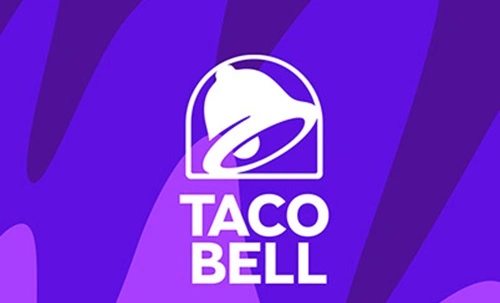Taco Bell, the globally popular Mexican-inspired quick-service restaurant (QSR), has gained significant traction in India. Known for its tacos, burritos, quesadillas, and other innovative menu offerings, Taco Bell appeals to the Indian palate with its fusion of spices and flavors. For entrepreneurs interested in the food and beverage sector, investing in a Taco Bell franchise in India presents an exciting opportunity to partner with a recognized international brand.
This article provides an in-depth overview of the costs, requirements, and profitability of owning a Taco Bell franchise in India, along with the steps to acquire one and the challenges involved.
Why Choose a Taco Bell Franchise in India?

- Global Brand Recognition: Taco Bell is a household name worldwide, ensuring instant trust and a loyal customer base in India.
- Innovative Menu: Taco Bell offers a variety of Mexican-inspired dishes that appeal to both vegetarians and non-vegetarians in India.
- Expanding Market: With India’s growing QSR market and increasing demand for international cuisines, Taco Bell is poised for significant growth.
- Support from the Brand: Franchisees benefit from extensive training, marketing, and operational support from Taco Bell’s parent company, Yum! Brands, which also owns KFC and Pizza Hut.
Taco Bell Franchise Business Model
Taco Bell operates in India through a master franchise agreement with Burman Hospitality Pvt. Ltd. While individual franchise opportunities are limited, aspiring entrepreneurs can explore partnership opportunities or understand the cost structure for potential collaborations.
Cost of a Taco Bell Franchise in India
The investment required to set up a Taco Bell franchise varies depending on the type and size of the outlet. Here’s a detailed breakdown:
Initial Investment
- Franchise Fee: The one-time franchise fee for a Taco Bell outlet in India ranges between ₹20 lakhs and ₹30 lakhs, depending on the location and market potential.
- Setup Costs: Establishing a Taco Bell outlet involves costs for interiors, kitchen equipment, signage, and technology. These costs typically range between:
- ₹1.2 crores to ₹1.8 crores for a standard dine-in restaurant.
- ₹60 lakhs to ₹1 crore for a smaller express or kiosk model.
- Real Estate Costs: Taco Bell outlets are typically located in prime areas such as malls, high streets, or commercial hubs. Leasing or renting commercial space can cost anywhere from ₹2 lakhs to ₹8 lakhs per month, depending on the city and location.
- Licenses and Permits: Securing food and beverage licenses, fire safety approvals, and municipal permits may cost an additional ₹5-10 lakhs.
Recurring Costs
- Royalty Fee: Taco Bell charges a royalty fee of 6-8% of monthly gross sales.
- Operational Costs: These include salaries, utilities, inventory procurement, and maintenance, typically amounting to ₹3-6 lakhs per month, depending on the outlet’s size.
- Marketing Contributions: Franchisees are required to contribute 4-5% of their monthly gross sales toward local and national marketing campaigns.
Profitability of a Taco Bell Franchise
Taco Bell franchises are known for their profitability due to the brand’s strong appeal and consistent demand. Here’s an overview of potential profitability:
- Revenue: A well-located Taco Bell outlet can generate monthly revenues ranging from ₹10 lakhs to ₹50 lakhs, depending on footfall and sales performance.
- Profit Margins: After accounting for operational expenses, profit margins typically range between 15-20%.
- Breakeven Period: Most Taco Bell franchises achieve breakeven within 2-3 years, provided they are strategically located and efficiently managed.
Eligibility Criteria for a Taco Bell Franchise
To qualify for a Taco Bell franchise in India, applicants must meet the following requirements:
- Financial Capability: A net worth of at least ₹3-5 crores and liquid assets of ₹1-2 crores are required to support the initial investment and operational costs.
- Prime Location Access: The ability to secure a high-footfall commercial property in malls or busy shopping areas.
- Business Acumen: Prior experience in the food and beverage or QSR industry is preferred but not mandatory.
- Commitment to Standards: Franchisees must adhere to Taco Bell’s strict quality, operational, and customer service guidelines.
How to Apply for a Taco Bell Franchise
- Submit an Inquiry: Visit Taco Bell India’s official website or contact Burman Hospitality Pvt. Ltd. to express interest in franchising.
- Application Review: The franchise team evaluates your financial stability, business background, and proposed location.
- Location Approval: The proposed site is assessed for its market potential and alignment with Taco Bell’s brand strategy.
- Franchise Agreement: Once approved, sign a franchise agreement detailing the terms and conditions of the partnership.
- Training and Setup: Taco Bell provides comprehensive training for staff and franchisees, as well as assistance with store setup and marketing.
- Launch: Open the outlet with marketing and operational support from Taco Bell.
Benefits of Owning a Taco Bell Franchise
- Established Brand: Leverage Taco Bell’s global reputation and loyal customer base.
- Comprehensive Support: Receive extensive training, marketing assistance, and operational guidance from Taco Bell.
- Innovative Menu: Taco Bell’s unique offerings attract a wide range of customers.
- Growing Market: Tap into India’s expanding QSR market and increasing demand for international cuisines.
Challenges of Operating a Taco Bell Franchise
- High Initial Investment: The setup costs may deter smaller investors.
- Market Competition: The QSR market in India is competitive, with brands like McDonald’s, KFC, and Burger King vying for market share.
- Operational Demands: Managing inventory, staff, and customer service requires consistent effort and dedication.
- Location Dependency: The success of the franchise heavily relies on securing a prime location in a high-footfall area.
Conclusion
Investing in a Taco Bell franchise in India is an excellent opportunity for entrepreneurs looking to enter the thriving QSR market. With its innovative menu, strong brand reputation, and growing popularity among Indian consumers, Taco Bell offers a reliable pathway to profitability.
However, success requires strategic planning, efficient management, and adherence to Taco Bell’s high standards. By leveraging the brand’s support and India’s growing appetite for international cuisines, you can establish a successful and sustainable business.
Anantha Nageswaran is the chief editor and writer at TheBusinessBlaze.com. He specialises in business, finance, insurance, loan investment topics. With a strong background in business-finance and a passion for demystifying complex concepts, Anantha brings a unique perspective to his writing.


